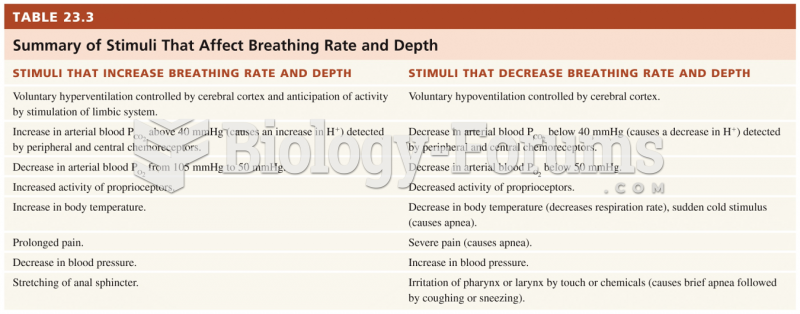|
|
|
In 1864, the first barbiturate (barbituric acid) was synthesized.
Cutaneous mucormycosis is a rare fungal infection that has been fatal in at least 29% of cases, and in as many as 83% of cases, depending on the patient's health prior to infection. It has occurred often after natural disasters such as tornados, and early treatment is essential.
Asthma cases in Americans are about 75% higher today than they were in 1980.
When taking monoamine oxidase inhibitors, people should avoid a variety of foods, which include alcoholic beverages, bean curd, broad (fava) bean pods, cheese, fish, ginseng, protein extracts, meat, sauerkraut, shrimp paste, soups, and yeast.
Signs of depression include feeling sad most of the time for 2 weeks or longer; loss of interest in things normally enjoyed; lack of energy; sleep and appetite disturbances; weight changes; feelings of hopelessness, helplessness, or worthlessness; an inability to make decisions; and thoughts of death and suicide.
 Achondroplasia. The individual in this photograph has the reduced limb development that typifies thi
Achondroplasia. The individual in this photograph has the reduced limb development that typifies thi
 A biological profile from the bony remains of an individual may be preferable to a DNA profile for a
A biological profile from the bony remains of an individual may be preferable to a DNA profile for a





